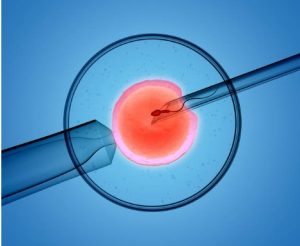- Home
- Editorial
- News
- Practice Guidelines
- Anesthesiology Guidelines
- Cancer Guidelines
- Cardiac Sciences Guidelines
- Critical Care Guidelines
- Dentistry Guidelines
- Dermatology Guidelines
- Diabetes and Endo Guidelines
- Diagnostics Guidelines
- ENT Guidelines
- Featured Practice Guidelines
- Gastroenterology Guidelines
- Geriatrics Guidelines
- Medicine Guidelines
- Nephrology Guidelines
- Neurosciences Guidelines
- Obs and Gynae Guidelines
- Ophthalmology Guidelines
- Orthopaedics Guidelines
- Paediatrics Guidelines
- Psychiatry Guidelines
- Pulmonology Guidelines
- Radiology Guidelines
- Surgery Guidelines
- Urology Guidelines
Endometrial scratch does not increase contraception chances in IVF patients

Endometrial scratch -- an add-on treatment commonly offered to female in vitro fertilization (IVF) patients to improve their chance of success -- is shown to be of no value in a large randomized trial. The technique was associated with no improvements in pregnancy or live birth rates and should be abandoned as a procedure by fertility clinics, say an international team of investigators.
The results of the study were presented by Sarah Lensen, a researcher from the University of Auckland, New Zealand, at the 34th Annual Meeting of European Society of Human Reproduction and Embryology (ESHRE) in Barcelona.
Endometrial scratch is a technique whereby a small scratch or tissue biopsy is made to the lining of the uterus prior to IVF and was earlier thought to increase success rates of IVF.
The study was a large randomized trial performed at 13 fertility centers in five countries (New Zealand, UK, Belgium, Sweden and Australia) and involving more than 1300 women having IVF. One half were randomly assigned to endometrial scratching and the other to no adjuvant procedure. The scratch was performed with a Pipelle cannula, a small flexible plastic tube commonly used for performing uterine biopsy for a variety of indications. In IVF, where some studies have shown a benefit in outcome, it's been proposed that injury to the lining of the uterus causes an inflammatory response conducive to implantation following embryo transfer.
Read Also: Endometrial scratch appears beneficial in IVF conception: Study
"Results from earlier studies have suggested a benefit from endometrial scratching in IVF," explained Lensen, "especially in women with previous implantation failure. However, many of these studies had a high risk of bias in their design or conduct and did not provide strong evidence. There was still uncertainty about the validity of a beneficial effect."
A total of 1364 women were randomized: 690 to endometrial scratching and 674 to control. Women in the endometrial scratch arm of the study had a Pipelle biopsy between day 3 of the preceding cycle and day 3 of the IVF/embryo transfer cycle. Controls had no intervention.
Key Findings:
- Clinical pregnancy rate in the endometrial scratch group was 31.4% and in the control group 31.2%; live birth rates were 26.1% in the former and 26.1% in the latter.
- The probabilities of pregnancy were still comparable after controlling for variables and sub-group analysis, which included patients with a history of implantation failure in IVF (defined as two or more unsuccessful embryo transfers). This group in earlier studies has appeared to gain particular benefit from the procedure.
- Subgroup analysis did not identify any subpopulations that may benefit from endometrial scratching; there was no evidence of a benefit in women: with recurrent implantation failure, undergoing fresh or frozen cycles, or depending on the timing of the scratch in relation to the embryo transfer.
- There were 14 adverse events related to endometrial scratching: 7 vasovagal reactions, 2 excessive bleeding, and 5 excessive pain.
This latest study also measured pain discomfort score associated with endometrial scratch and found "a moderate amount of pain and bleeding". This too, said the investigators, was further reason why endometrial scratch should be abandoned and removed from the list of IVF adjuvant options.
"Our results contradict those of many studies published previously," said Lensen, "and, although our trial was the largest and most robust study undertaken so far, it can be difficult for one trial to change practice. However, there are other trials underway at the moment, including two large studies from the Netherlands and UK. Nevertheless, even based just on our results, I think clinics should now reconsider offering endometrial scratch as an adjuvant treatment."
"This was a large trial and the pragmatic design increases the generalisability of the results. As the beneficial effects reported previously were not confirmed by this trial, and the procedure caused a moderate amount of pain and bleeding, the current use of endometrial scratching in fertility clinics
should be abandoned," concluded the authors.

Disclaimer: This site is primarily intended for healthcare professionals. Any content/information on this website does not replace the advice of medical and/or health professionals and should not be construed as medical/diagnostic advice/endorsement or prescription. Use of this site is subject to our terms of use, privacy policy, advertisement policy. © 2020 Minerva Medical Treatment Pvt Ltd